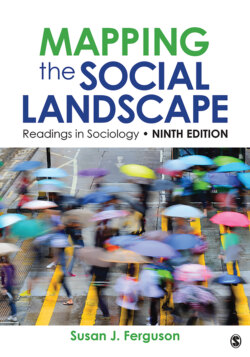Читать книгу Mapping the Social Landscape - Группа авторов - Страница 43
На сайте Литреса книга снята с продажи.
Partial Truth and Inevitable Uncertainty
ОглавлениеThe student who said, “Anyone can make up numbers,” did not want to suffer uncertainty. Perhaps he was afraid that if he let go of what he already believed, he would end up lost, not knowing what to believe. He did not know how to be mindfully skeptical.
Part of what we fear is losing what we think is the truth. If we are sociologically mindful, however, we know that we never possess the absolute, complete truth. What we have is a head full of humanly-created images, representations, and accounts that seem to pretty well make sense of the world as we know it. Why not stand ready, as we see and experience more of the world, to invent or borrow new ways of making sense?
If we can admit that there is more to the world than we have yet seen or experienced—and more than we could see and experience in a lifetime—perhaps we can also say to ourselves, “In anticipation of learning more about the world, as I surely will do, I will treat my current beliefs as provisional and explore alternative ways of making sense of things, because one of these ways might come in handy some day.”
To adopt this stance toward knowledge does not mean flitting from one belief to another. It is like the deliberate movement of wading upstream in a river. To move ahead you must take gentle steps, making sure of your footing before you shift your weight forward. You must stay flexible and lean into the current. If you rush or lose concentration, you will end up all wet. So you pay attention, moving mindfully when it makes sense to move.
Being sociologically mindful, we know that we never get to the whole truth about the social world. All the truths that we invent or borrow—all the images, representations, and accounts we come upon—are partial views of a whole that is unknowable because it is always changing in ways that run ahead of our ability to understand. We thus need not fear that new ideas and information will wrest the truth from us. They might, however, give us a larger, more complex, and unruly truth to contend with, and that can be unsettling.
For some people it is scary to think of never being sure of having it right. Imagining that one has it right, now and forever, is comforting. The problem, however, is that other people see things differently, and when conflicts arise, others will neither happily conform to the version of truth that comforts us nor lay down their knowledge to embrace ours. And so, if we want to understand and get along with others, we must be willing to seriously consider their perspectives and to tolerate the uncertainty that comes with this openness.
